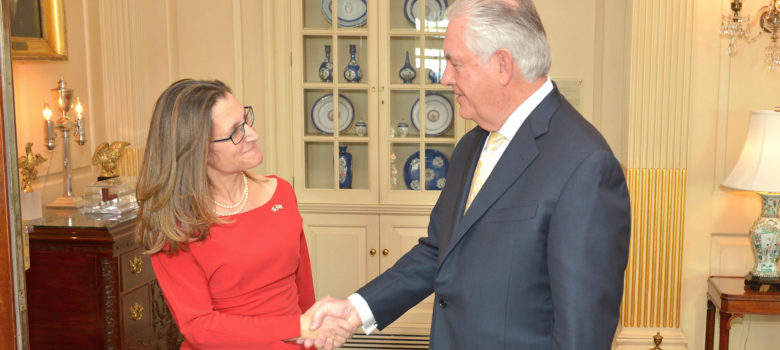The NAFTA renegotiation gets underway today, days after Canadian Foreign Minister Chrystia Freeland outlined Canada’s NAFTA negotiating objectives. As her first core objective, Freeland identified modernizing NAFTA so that “all sectors of our economy can reap the full benefits of the digital revolution.” Those comments suggest that the IP chapter and a new e-commerce chapter will be top negotiating priorities. I’ll post on the e-commerce chapter tomorrow, but this post highlights my recent CIGI essay on how Canada can use the NAFTA intellectual property chapter to help level the innovation playing field.
While Canada is accustomed to “playing defence” to U.S. IP demands, this round of renegotiation offers the chance to pro-actively ensure that Canadian IP priorities and policies are reflected in the agreement. To place the IP issue in context, over the past five years, Canada has added anti-circumvention laws similar to those found in the U.S., added stronger enforcement measures (including the “enabler” provision for websites that facilitate infringement), enacted anti-counterfeiting laws, extended the term of protection for sound recordings, and engaged in patent and trademark reforms. When added to earlier reforms such as anti-camcording rules and recent court decisions that addressed U.S. concerns about Canadian patent rules, Canada has acquiesced to many IP policy demands from the U.S.
As Canada embarks on a new round of NAFTA talks, it should be recognized that Canada already meets its international IP obligations and has largely addressed previous U.S. demands regarding further reforms. At a broad level, the Canadian negotiating goal should be to retain an appropriate IP balance that fosters creativity and access, while ensuring that there is room for Canadian-specific policies that sit within the flexibilities of the international IP framework.
The full CIGI piece identifies five opportunities: inclusion of balance as an IP objective, a fair use provision, anti-circumvention legislation exceptions, rules on IP abuse and misuse, and rejection of U.S. efforts to extend the term of copyright.








Pingback: The NAFTA E-commerce Chapter: Ensuring the New Chapter Reflects Canadian Priorities - Michael Geist
Pingback: The NAFTA E-commerce Chapter: Ensuring the New Chapter Reflects Canadian Priorities – Debrah Nesbit
Pingback: How Canada Can Use NAFTA’s IP Chapter to Level the Innovation Playing Field – Debrah Nesbit